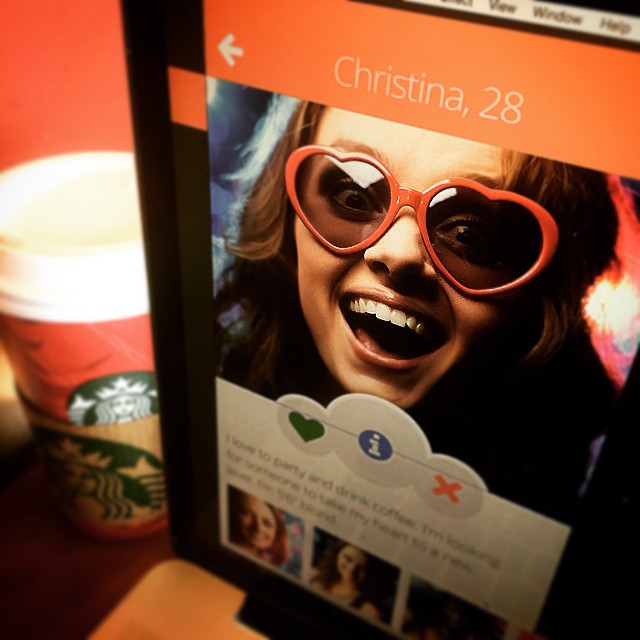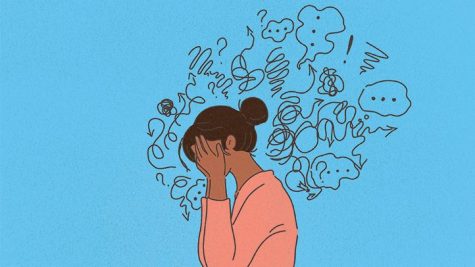The Drawbacks of Dating Applications
By Kelly Christ
The world of relationships and dating has changed drastically in the digital age. In many ways, the accessibility of dating apps and match-making websites for every group of people may seem like a great new advantage. There are endless options. Keep swiping to find your perfect match, or so the algorithm says.
However, in order to participate, we must put ourselves on the line. A few pictures and a short biography are the deciding factors in potential mates contacting us. It is no surprise that this leads to a deep sense of vulnerability; users often base their confidence on the number of likes, matches or messages they receive on a given app or website. How does this impact the mental health of users? Are we improving our odds of finding a healthy, mutual relationship, or are we setting ourselves up for disappointment?
From Christian Mingle to FarmersOnly.com, there is a dating app for just about anyone. Many applications provide an easy way for members of certain social groups to meet people with similar interests. These include apps made specifically for the LGBTQ+ community or for followers of certain religions. Technology has made it easier than ever for us to find our “happily ever after,” but are we risking our mental health in the process?
One of the most popular dating apps today is Tinder. It was one of the first apps to use a “swipe” algorithm, where users simply swipe right or left on their screen to accept or reject a potential partner. Tinder is geographically focused and emphasizes the high-speed capabilities of technology; we often value convenience over quality as a trade-off.
When bombarded with hundreds of potential options, it feels like we need to keep swiping to make sure we do not miss our potential Prince Charming. Dating has turned into something of a slot machine: we are on a constant quest for the elusive win in exchange for our own self-esteem.
There is no doubt that chatting someone up in person is incredibly nerve-wracking. We put ourselves out there for either acceptance or rejection. While rejection always hurts, people often try to sugarcoat their answers and let their approacher down easily.
With dating apps, users are able to hide behind screens. They do not even need to respond to suitors. As with cyberbullying, the anonymity of the web often gives users a sense of courage that comes from not facing the immediate repercussions of hurting another person’s feelings.
Psychology Today noted that the concept of “human disposability” can be promoted by such apps. With millions of users often messaging multiple individuals at once, it is easy to forget that every picture belongs to a real person.
As one BBC article explains, many users go on dating apps merely to pass time, swiping left or right on potential options and messaging with others without the intention to meet or engage in any kind of real-life relationship with the other user.
Unsurprisingly, reducing yourself to a profile picture and a short biography has been proven to impact self-esteem negatively, an effect strongly supported by a multitude of studies, in addition to the self-reports of hundreds of users. The consensus seems to show that anxiety and depression, as well as low self-esteem, are prominently linked to these apps.
Users have noted how they felt using the apps. In the Center for Humane Technology’s app ratings report, the dating app Grindr, which utilizes a grid algorithm organizing users by geographic proximity, ranked number one on the “unhappiness” ratings, with a score of 77 percent. Tinder was not far behind. (Also worth noting: Snapchat and Instagram both made the unhappiness list.)
The algorithms utilized by these dating apps likely contribute to the negative repercussions. Apps like Tinder and Grindr that use geographic proximity as a leading factor for matches insinuate a hookup-oriented goal. By swiping through options, the humanity and complexity of each individual are often lost, thus having even more damaging results for the user’s emotional well-being.
Tinder quite literally quantifies its users with a rating system based on responses one has gotten. The app will only let you interact with users of similar ratings.
Other dating services such as Match.com, Hinge and OkCupid use a longer process that emphasizes long-term relationships and conversation. Focusing more on the personal information and interests of each potential match, users may feel more validated and appreciated for aspects other than physical appearance.
Technology has a significant impact on the mental health of almost everyone. Dating apps, in a similar manner to social media, can have positive effects on their users. The key is being aware of the mental health effects. Knowing when to log off or even uninstall is essential. Disconnecting can have a restorative effect on your mental health.
Just like there are precautions to take for one’s physical safety when pursuing an online relationship, it is imperative that users acknowledge when the apps have gone too far for them. Once it is past the point of enjoyable communication with potential partners and enters the realm of a discouraging or even depressing interaction, it is time to quit.
Remember that the best relationships are often unexpected. Sometimes, we find the best love when we are not looking for it.
If you are struggling with mental health issues, do not hesitate to contact the following resources:
Fordham University Counseling and Psychological Services (RH): 718-817-3725
Suicide Prevention Lifeline: 1-800-273-8255
Crisis Textline: text START to 741-741













































































































































































































